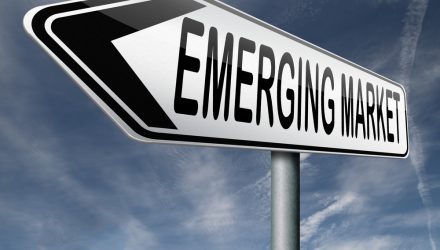The rollercoaster ride known as emerging markets (EM) during the coronavirus pandemic may have put off investors with all the volatile market movements in EM assets. However, the ride may be smoothening as volatility wanes amid a number of economies reopening and adjusting to social distancing measures.
Another factor playing into the market fluctuations in EM equities, in particular, are the relations between China and the U.S. While a trade deal between the two largest economies fell to the wayside amid the coronavirus pandemic, it will still be a major market mover to watch moving forward.
Per a Bloomberg report, “While implied volatility for emerging-market currencies declined for a third week in the five days through Friday, expected swings for stocks fell to the lowest since February. The calm belies the potential turmoil from China’s attempts to tame signs of exuberance in the nation’s equities market or any flareup in Sino-U.S. tensions.”
Additionally, central bank policies should be on the radar of due diligence should investors seek opportunities in EM. Furthermore, it should be noted how each individual government takes action to stem the tide of coronavirus cases.
“G-7 central-bank policy will remain the key driver for emerging-market asset performance, with the excess liquidity keeping the backdrop relatively stable,” said Simon Quijano-Evans, chief economist at Gemcorp Capital LLP in London. “That is also helping to counter any idiosyncratic negatives out of individual emerging-market countries, especially with regard to how governments are dealing with the Covid-19 onslaught.”
Investors looking to get into EM can use the Goldman Sachs MarketBeta Emerging Markets Equity ETF (GSEE). GSEE seeks to provide investment results that closely correspond, before fees and expenses, to the performance of the Solactive GBS Emerging Markets Large & Mid Cap Index.
The fund invests at least 80% of its assets in securities included in its underlying index, in depositary receipts representing securities included in its underlying index and in underlying stocks in respect of depositary receipts included in its underlying index, which consists of equity securities of large and mid-capitalization issuers covering approximately the largest 85% of the free-float market capitalization in emerging markets.
Investors who want broad exposure to EM can look at funds like the Vanguard FTSE Emerging Markets ETF (NYSEArca: VWO). VWO employs an indexing investment approach designed to track the performance of the FTSE Emerging Markets All Cap China A Inclusion Index. It invests by sampling the index, meaning that it holds a broadly diversified collection of securities that, in the aggregate, approximates the index in terms of key characteristics.
For more market trends, visit ETF Trends.









